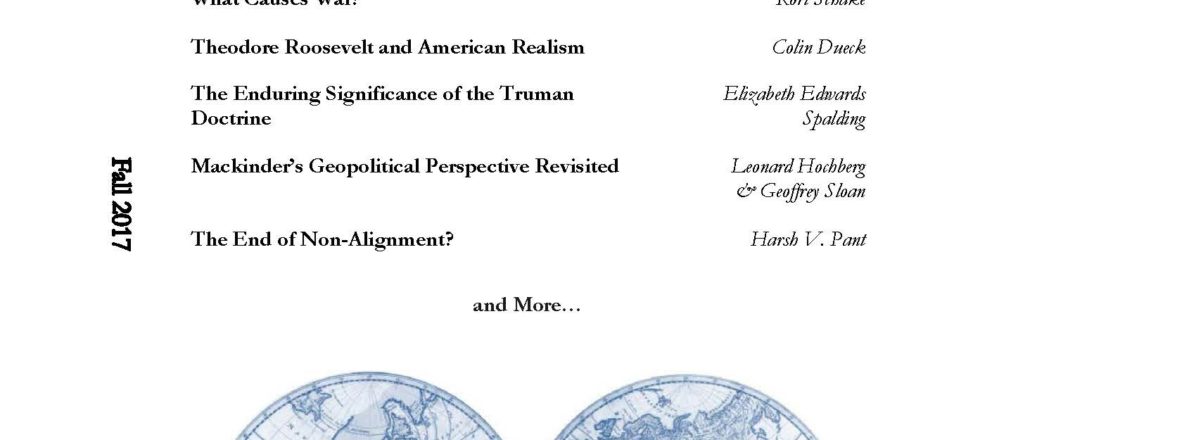A nation must think before it acts.
Abstract
This article explores three themes related to classical geopolitics: first, it presents reasons why scholars and commentators abandoned geopolitical analysis after World War II, and then reengaged with geopolitical factors after the Soviet Union’s collapse; second, it suggests how Mackinder’s geopolitical concept of the heartland illuminates the strategic goals of Russia and China, the leading powers of the Shanghai Cooperation Organization; and, third, it introduces utility of classical geopolitical thought for how the United States might respond to the potential domination of Mackinder’s heartland by the Shanghai Cooperation Organization.
External Link
Related Publication(s)
Join the Conversation
Join the Conversation
Join FPRI's community and stay up to date on new publications, event invitations, podcasts, and major updates.



